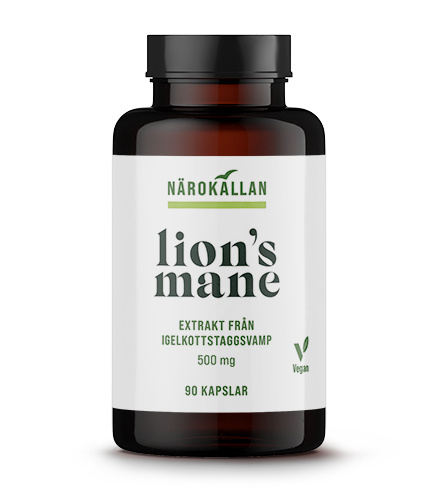
Minerals
Here you will find a wide range of minerals as dietary supplements. Minerals can be taken as dietary supplements when you do not get a sufficient amount through your diet. Our mineral supplements are developed to be as bioavailable as possible. They differ from ordinary elements in that they are bound to organic compounds. It can be amino acids or other easily absorbable substances that make the mineral stable and absorbed faster in the body.
- Home
- Products
- Supplements
- Minerals
Why do humans need minerals?
Humans need minerals to feel good. Minerals are substances that the body cannot produce by itself and must therefore be supplied through our diet. Minerals are vital for both women and men and have many different functions in the body. A lack of minerals in food can often cause specific symptoms, while too large amounts of them at once can be unhealthy.
Minerals are usually divided into two groups:
1. Minerals: These work much like building blocks in the body and we need relatively large amounts.
The group includes calcium, phosphorus, potassium, sulphur, sodium, chlorine and magnesium.
2. Trace elements: We need a slightly smaller amount of these minerals.
Such are zinc, selenium, chromium, iodine, iron, fluorine, copper and cobalt.
You can read more about some of the most important minerals here on the right.
- Potassium
Potassium is a mineral and a vital element that we need for the body's nerve and muscle function and to regulate blood pressure in the body. The recommended daily reference intake differs between different age groups.
Potassium is found in basically all foods. Slightly higher levels are found in dried fruit, nuts, seeds, potatoes, vegetables and fresh fruit. Animalbased foods such as meat, fish and dairy products are also central sources of minerals with potassium.
- Iron
Iron helps transport oxygen both in the blood and in the muscles, therefore we can feel a little tired with an iron deficiency if we have not gotten enough iron through the diet. The body's absorption of iron is low compared to several other nutrients. Minerals such as iron are mainly found in blood foods and offal foods such as liver and blood pudding. You can also find iron in meat, eggs and shellfish - and also in vegetable foods such as dried fruit, legumes, nuts, seeds and whole grain products. The recommended daily intake of iron differs between different age groups.
There are two types of iron – heme iron and non-heme iron. Heme iron is the easiest for the body to absorb and makes up about half of the iron content in blood food and meat. Vegetable foods contain exclusively non-heme iron, which is not absorbed by the body as efficiently.
Vitamin C, fish and meat can improve the absorption of non-heme iron, while substances such as polyphenols (found in, for example, coffee, wine, tea and even some herbal teas) and phytic acid (found in grains, legumes and nuts) can reduce absorption. The phytic acid is broken down to some extent by scalding, long-term fermentation of bread and sourdough baking. Germination of seeds and legumes also reduces the amount of phytic acid. - Calcium
The mineral calcium is a vital element which, among other things, is needed when teeth and bones form and during blood coagulation. Calcium affects a number of processes in and between the body's cells.
Calcium is found in most foods, including dairy products, leafy vegetables and nuts. Vegetable alternatives to milk are often fortified with calcium. The recommended daily intake of calcium varies with age and gender. The amount of calcium in the blood is regulated by an interaction between the skeleton, intestines and kidneys.
- Magnesium
Magnesium is needed in our body for, for example, normal muscle and nerve function, the production of protein and the turnover of calcium. Minerals with magnesium are mainly found in whole grain products, legumes, leafy vegetables, meat, fish and shellfish. We also get magnesium through the water we drink.
Severe magnesium deficiency is rare, but it can occur when the diet is restricted or in certain diseases. Lack of magnesium can cause behavioral disorders, stunted growth and disturbances in heart function. Magnesium deficiency can also result in muscle cramps. The recommended daily intake of magnesium differs between different age groups. You can read more about this mineral under magnesium.
